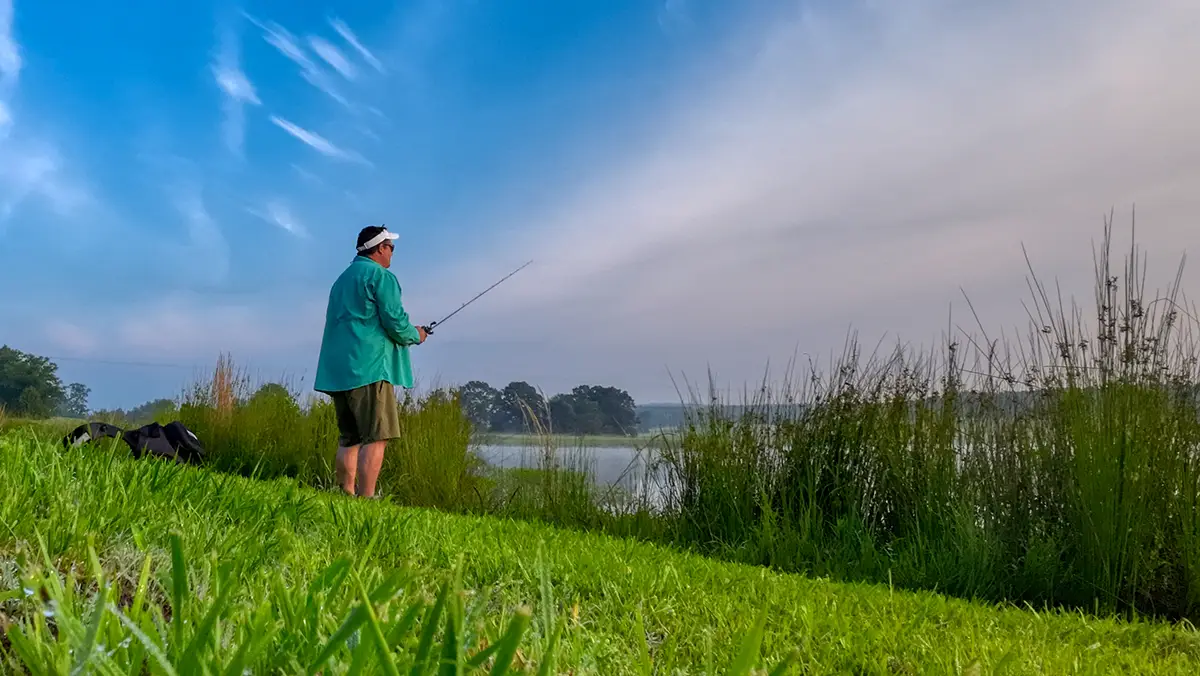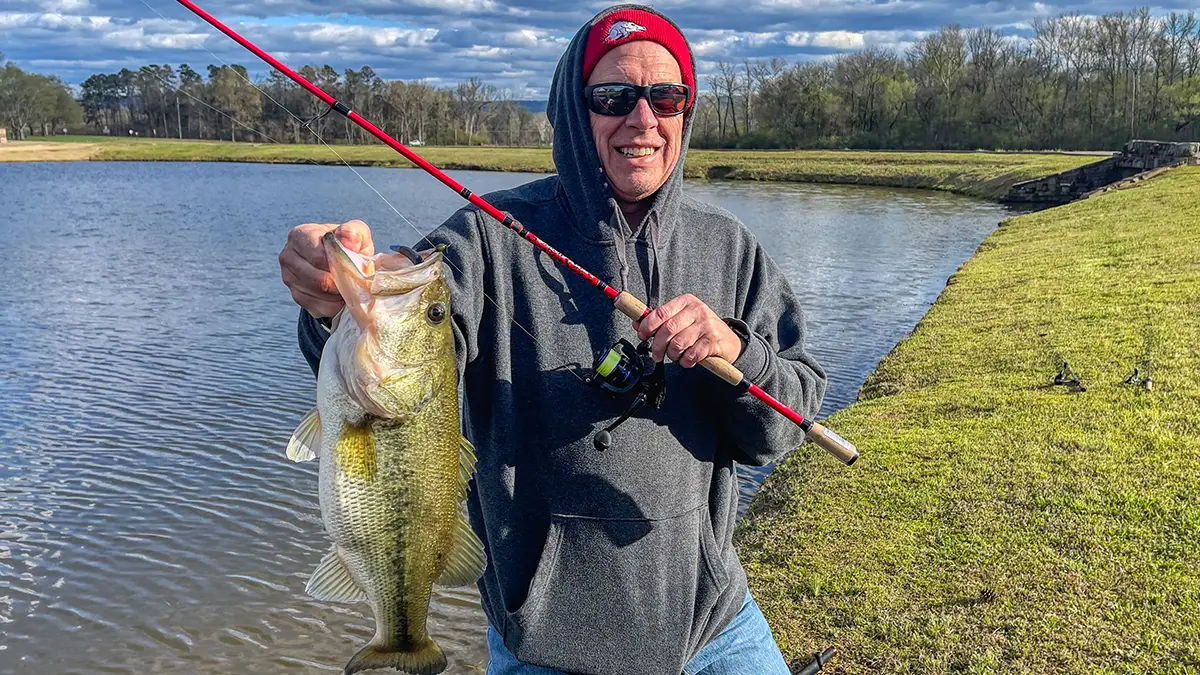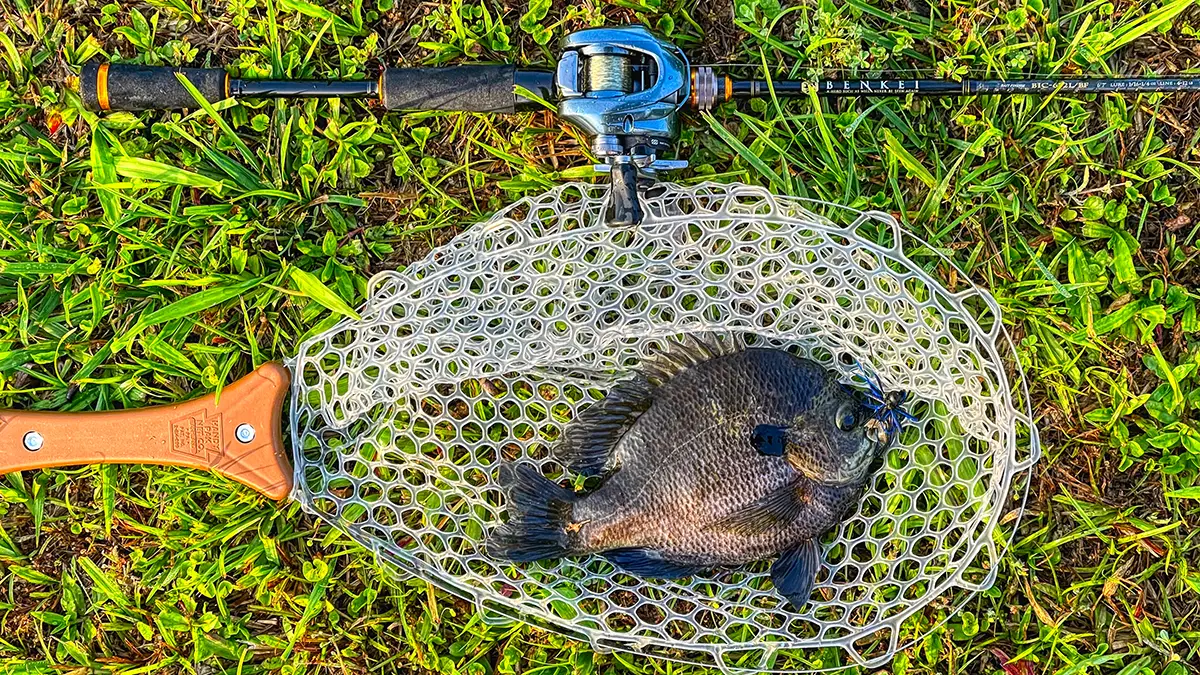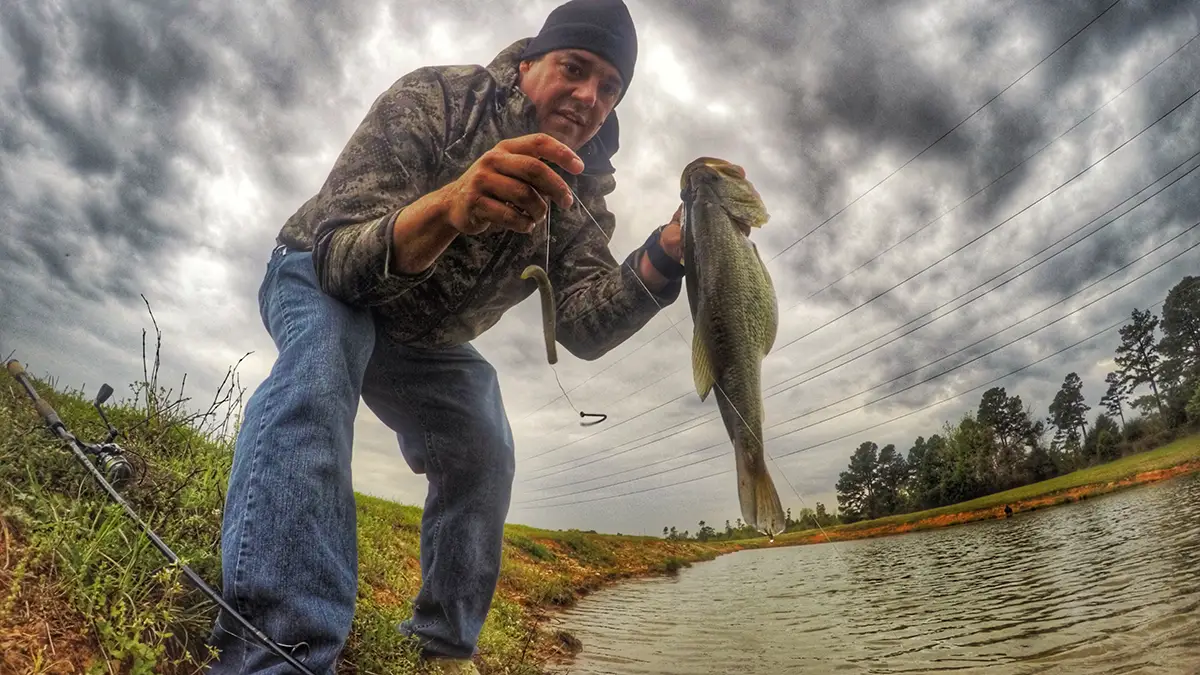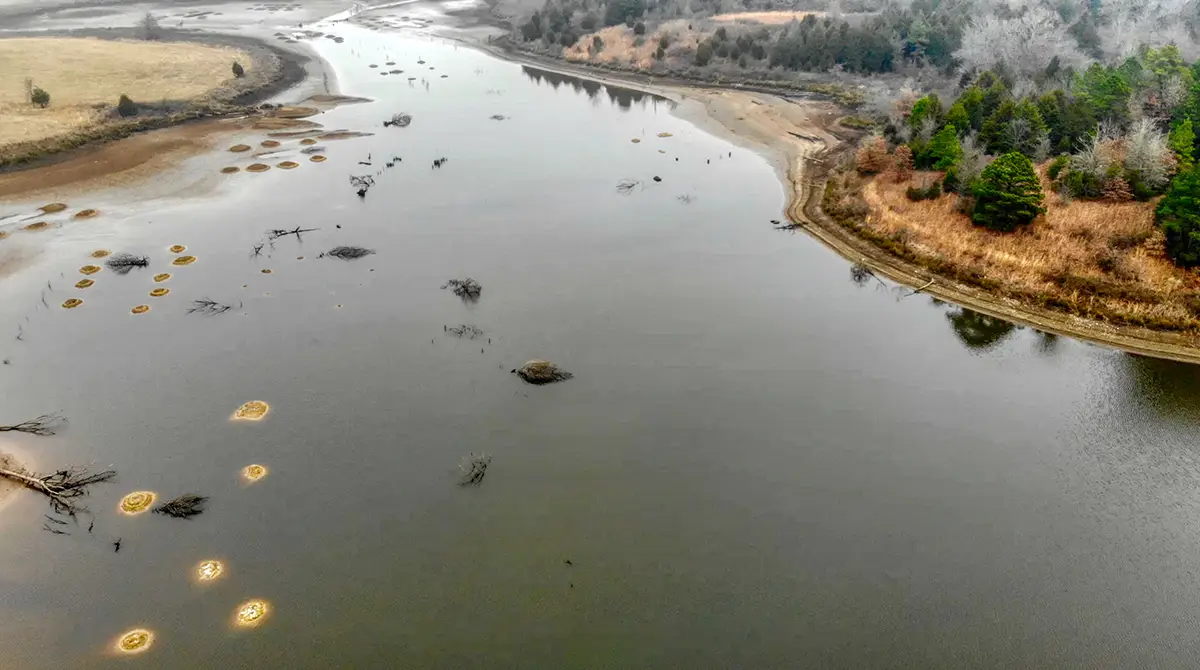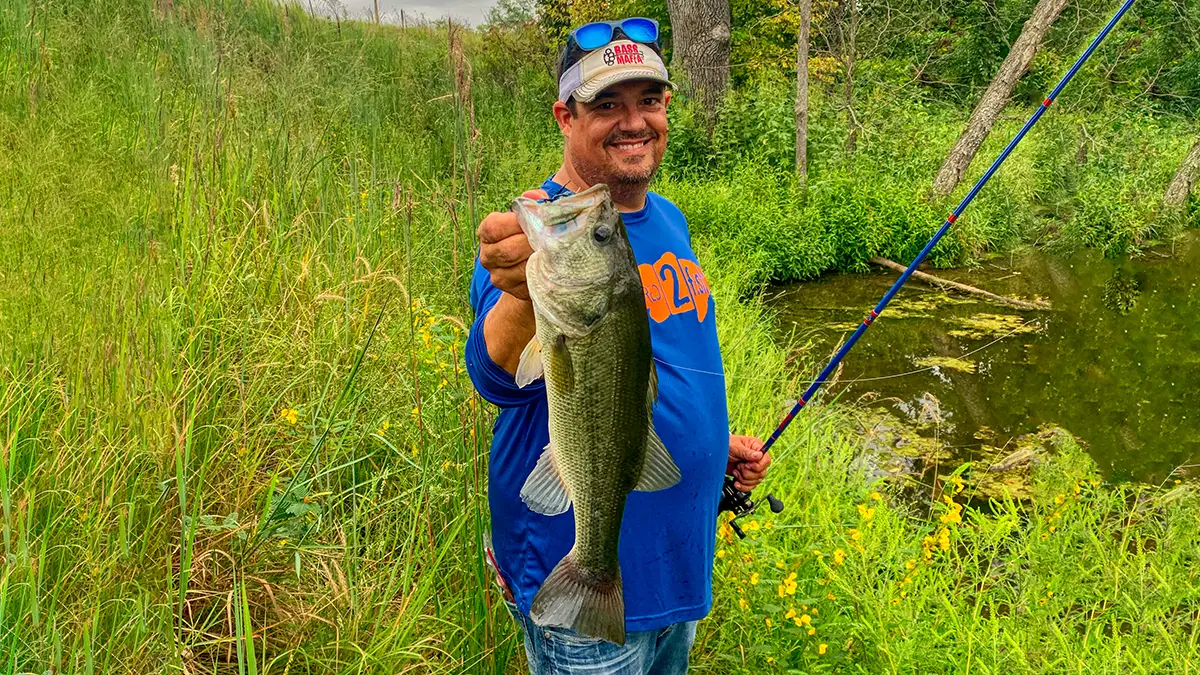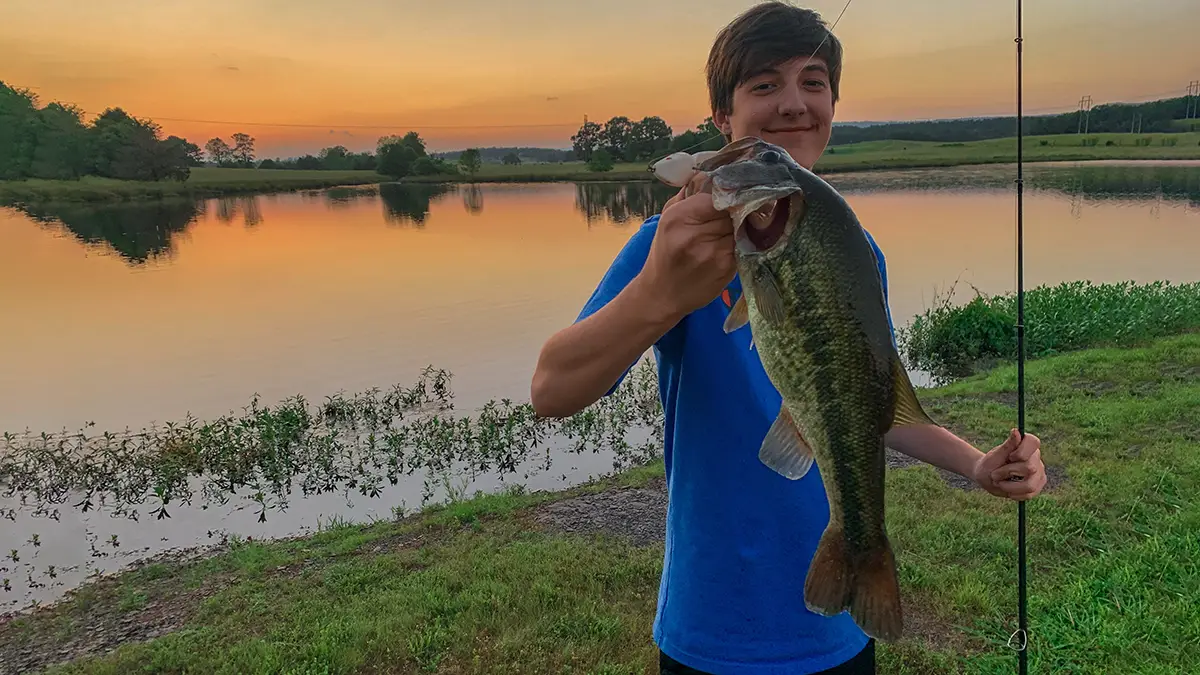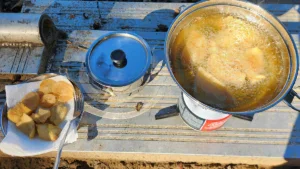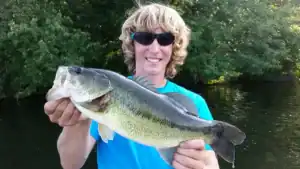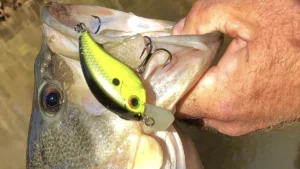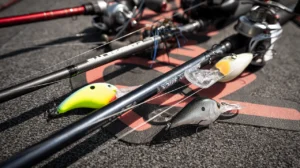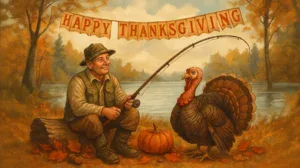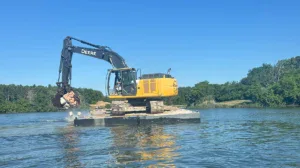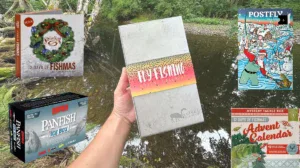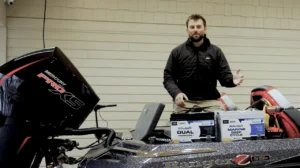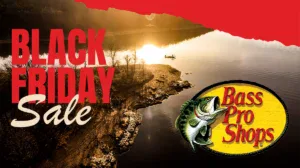Some of us got our start in this passion by some early childhood pond fishing. While my father took me fishing in his boat on occasion, I really found my love of fishing by testing different lures and presentations on ponds not too far from the house. And at 51 years of age, I still love to fish on a productive pond. And I still learn a lot from pond fishing about bass, crappie and bluegill’s behaviors.
Pond fishing can be a great way to introduce new anglers to fishing. It can also be a great avenue for testing new lures, techniques, and gear before spending hard-earned free time on the big waters. I have honed many techniques thanks to the availability of ponds to fish growing up.
While I consider myself a bass fisherman, my take on fishing ponds has changed over the years. Now I assess the smaller body of water and determine what I think will be the best way to catch the best fish in the lake. Sometimes that’s bass. But sometimes the pond has trophy bluegill. Sometimes it has slab crappie. So now I have a more opened mind and I’ve gotten into travel gear and building small kits for different things like my rigging kit, my bluegill kit, my crappie kit and my bait finesse system (BFS) kit. This enables me to bring a sampling of lures I think will target different species in one bag.
Pond Fishing setup
So let’s talk briefly about what you need to do a little pond fishing. The great thing is you don’t have to have the best rods or reels. Just something good enough to get a line in the water. I’ve caned poled and spin casted on farm ponds since I was barely old enough to talk. So I always recommend starting simple.
An affordable spin cast combo is great for beginners just starting in fishing. But I also think starting with a simple spinning rod and reel combo is a great way to start. Put some 6 or 8-pound monofilament line on there and go to work with a handful of small lures or No. 6 Aberdeen hook and split shot and some earth worms out of the ground.
It doesn’t need to be any harder than that to get started. I like a medium to medium light spinning rod with a spinning reel in the 500 to 1000 size with 6 pound line if you’re not sure what is in the pond. With that combo and line you can fish for bass, crappie and bluegill easily.
Pond Fishing Tips for Beginners
While the inclination is to walk to the water’s edge and throw the line out as far as you possible can, in the spring, most of the fish are pretty close to the bank. If there is something in the water like a fallen tree, stumps, grass or rocks, there will likely be fish somewhere nearby.
Learn to cast parallel to things in the water, then eventually as you improve, you will get to where you can make roll casts and short pitches with lures to get the bait right at the cover without getting snagged.
A topwater lure or a lure you can keep up high in the water column will keep you from snagging and losing your lures. Similarly a Texas-rigged worm will keep your hook covered so you can fish it through the cover in the pond without getting snagged.
Use smaller lures in a pond. Because real estate is limited and populations may be large enough to keep bait small and fish small, small lures is always the best place to start next to live bait. We will give you several pond lure recommendations in the next section.
Be sure you have a pair of needle nose fishing pliers with you to unhook fish that might get your hook down in their mouth farther than you can unhook by hand.
Best Lures for Pond Fishing
Usually the smaller version of just about any lure you like will work on most ponds at certain times. And there are some lures that just seem to work all the time. We’ll list a handful of lures that have been absolute killers for us on ponds for a lot of years.
Again we recommend smaller sized lures for ponds as the bait in most ponds is usually small and if you’re unfamiliar with the pond, smaller lures will let you know what is in the pond besides bass.
Here are some of our all-time best pond fishing lures:
- Worden’s Rooster Tail
- Road Runner Marabou Jig
- Johnson Beetle Spin
- Heddon Tiny Torpedo
- 1/4 ounce Chatterbait
- Zoom Super Fluke
- 4-5 inch Yamamoto Senko
- Zoom Trick Worm
- Scum Frog Trophy Frog
- Booyah Pond Magic Spinnerbait
- Z-MAN Micro TRD on a Finesse ShroomZ head
Where to Fish on a Pond
We look for several things when we come to a pond. Does one side look deeper than the other side? This is usually told by one side having steeper banks and one side being a lot flatter. The flatter side will be the shallow side. We will start shallow with topwaters or light baits we can reel up high and keep them above snags. And then work out deep.
Is there water flowing into our out of the pond? This can create current and also add oxygen to the water and attract baitfish which will attract game fish. So fish the areas with water moving.
Does the pond have cover? Is there grass, a laydown tree, a dock or other form of cover in the water that might hold baitfish and the game fish will be nearby.
Do we see bait activity. Are the bugs on the surface and fish swirling on them. Are their minnows flicking on the surface in one area. That lets you know bait is present. And the game fish will be where the bait is generally speaking.
Is their any structure that looks different, like a deeper hole, a steeper bank, a culvert drain, a ditch where the water looks deeper. Focus on those transition areas to see if the fish are deep or shallow and gauge how active the fish are.
Recently on a pond outing in my travels, I was fishing a pond and the fish were all congregated on the high spot in the middle of the pond that had a harder bottom. The bait fish were staying in that area and that was keeping the bass, bluegill and crappie nearby. So look for something that stands out and is different than all of the rest of the pond around it.
And don’t forget some of the best fishing on a pond might be right next to the bank. So cast down the bank from where you are standing and not just out in the middle.
Pond Bank Fishing Tips
I always recommend some sort of rubber boots. I keep a set of fishing boots in my truck and slip them on because you might be in mud, or high grass and you might have to step in the water to unhook or land a fish. And I don’t want to mess up my good shoes. Plus, I want to protect myself from things I don’t see like a sharp rock in the grass or snakes.
Try to stay away from the waters edge and move slowly. Fish in a pond can see really well and you may push them out of an area just by how obtuse you are on the bank before you ever get to make a cast.
Practice casting your bait out while making minimal splash. So cast more side arm and keep the bait low to the water and feather the line before the bait lands to soften it’s landing. Cycle through lures in an area you think should be productive. Sometimes fish want to chase and sometimes they have to be coaxed into biting. So while you might have killed them on a spinnerbait here before, tonight they may not want to chase and a Texas rigged Zoom Trick Worm might be a better option.
I usually advise going light in a pond. Use 1/8 and 1/4 ounce weights and smaller hooks with smaller baits when fishing plastics. A lighter and smaller lure is less apt to get stuck.
Pond Fishing Nearby
One of the things about fishing ponds is they are usually just convenient. It might be the neighbor hood lake, a golf course nearby, your neighbor’s farm pond, or a small city pond that has a few fish stocked in it every year. There is a lot of small waters all around us. You just have to do some digging to find them.
Take a look at Google Maps and look for the water on the map and see which of those are ponds you might can access. Always ask permission if it’s a person’s private pond. You’d be surprised what a simple knock on a door and polite ask for permission might get you. Offer to help out around the pond or farm if its a local to you. Invite them to come fish with you.
I am fortunate to know a few people with ponds and also to know where a few good public small ponds are on my travels. It’s worth checking them out different seasons of the year. Spring is always a good choice and fall can be too. Summer and winter can make pond fishing a little tougher but usually it just means a change of approach like any body of water.
So keep your tackle small, use lighter offerings and a spinning rod with light line can throw a lot of baits easily without breaking the bank. You can get as advanced as you want to with pond fishing. I’ve been practicing my BFS casting and dialing in my gear on small lakes and ponds in between my trips to the bigger lakes. A pond is a great way to hone your skills as an angler. And you will be surprised what is lurking in a lot of overlooked ponds.
A few hooks and sinkers and tub of red worms can give you and your kids hours of enjoyment. So I feel blessed to have a few ponds to fish near me to wet a line and you should be looking for some ponds to fish near you.
